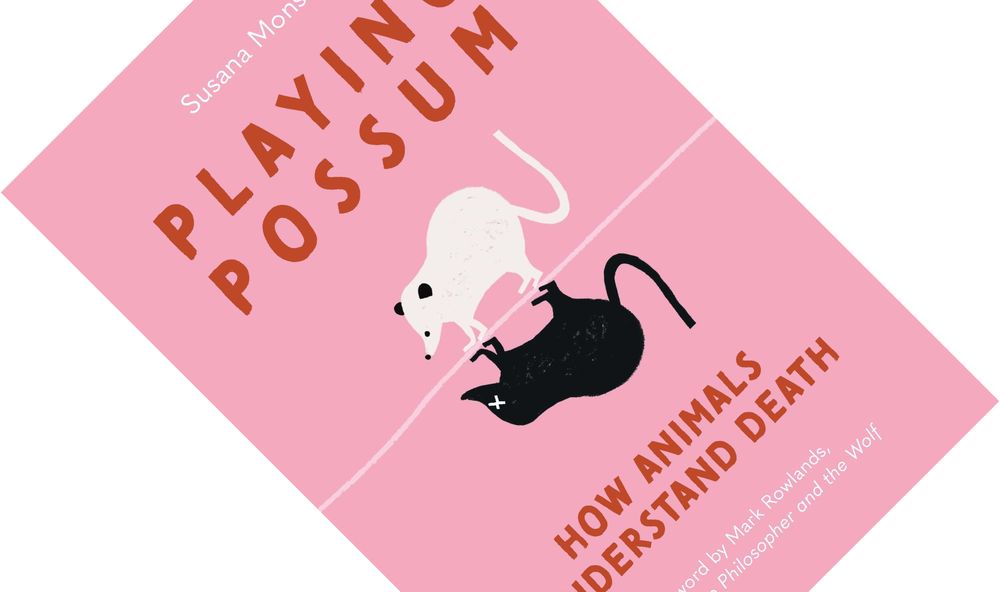7-minute read
keywords: ethology, philosophy, psychology
The Virginia opossum is one of nature’s glorious weirdos. This North American marsupial will play dead when feeling threatened: she will fall over paralysed, eyes and mouth wide open, turn her tongue blue, drop her body temperature and heart rate, and, for good measure, drool, pee, poop, and excrete a foul-smelling green goo from her anal glands, all at the same time. “Playing” dead rather undersells it. Having just reviewed How Animals Grieve, this is the second of a two-part review exploring how animals experience and understand death, a topic studied by comparative thanatology. This young discipline sits somewhere at the intersection of ethology and comparative psychology, though associate professor Susana Monsó is instead a philosopher. With Playing Possum, she has written an exceedingly interesting book that is as accessible to a general audience as it is relevant to specialists. In the process, she convincingly argues that an understanding of death is likely very widespread in nature, but also that comparative thanatology has a whole lot of growing up to do.

